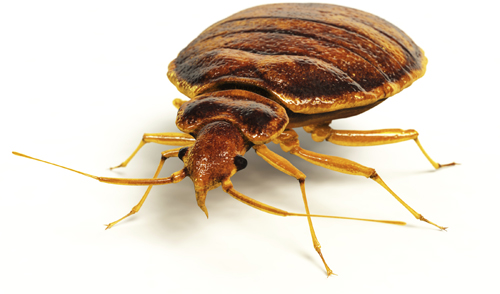Comprehensive Kings Bug Control Services Cincinnati OH
Comprehensive Kings Bug Control Services Cincinnati OH
Blog Article
A Breakdown of the Numerous Kinds of Pest Control Solutions
In the world of bug control, a wide range of methods exist to deal with the visibility and address of undesirable animals. From the traditional use chemical pesticides to more innovative organic control services, each technique uses distinct benefits and limitations. As we navigate through the diverse landscape of pest control remedies, understanding the intricacies of each technique ends up being paramount in figuring out the most reliable strategy. Keep tuned as we check out the nuanced world of bug control methods and find exactly how each type plays an unique duty in protecting our environments.
Chemical Pesticides
Chemical chemicals are frequently made use of in bug control to efficiently get rid of a large range of insects and various other insects. These pesticides work by targeting the nerves of the bugs, disrupting their regular functions, and inevitably bring about their demise. Using chemical pesticides has been a staple in the insect control market for years due to their performance and quick results.

However, it is important to utilize chemical pesticides with caution as a result of their possible hazardous impacts on the atmosphere and non-target species. Inappropriate application or overuse of these pesticides can lead to pollution, injury to helpful insects, and resistance development in insect populations. It is critical to comply with safety guidelines and policies when using chemical pesticides for insect control.
Biological Control Approaches
Thinking about the potential environmental influences and threats connected with chemical pesticides, biological control approaches use a more sustainable method to managing parasite populaces. Biological control involves using all-natural adversaries, such as virus, bloodsuckers, and predators, to subdue parasite populations. This technique is often much more targeted, impacting only the details bug varieties while reducing injury to helpful pests, humans, and the setting.

One benefit of organic control is its long-lasting efficiency. Once established, all-natural adversaries can assist manage pest populaces constantly without the need for repeated applications of chemicals. Additionally, biological control is typically much more cost-effective and can help in reducing pesticide resistance in insect populations with time. Overall, organic control methods use a lasting and ecologically friendly service to pest management.

Mechanical Insect Control
Mechanical pest control entails the physical adjustment or removal of insects to handle their populations efficiently. This method is often used combined with various other insect control approaches for comprehensive parasite monitoring. One usual instance of mechanical bug control is making use of traps to catch rodents or pests. These catches can be established in strategic areas where parasites are recognized to dwell, assisting to lower their numbers.
One more mechanical strategy is using barriers such as displays, webs, or fencings to block bugs from entering particular areas. By physically stopping bugs from accessing a location, the probability of problems or damages can be considerably minimized. Additionally, hands-on techniques like handpicking bugs off plants or frameworks can be reliable for smaller-scale infestations.
While mechanical parasite control approaches can Home Page be labor-intensive, they provide a non-chemical option that can be environmentally pleasant and lasting. By targeting bugs straight, mechanical control methods can assist keep parasite populations in check without relying upon pesticides.
Natural Solutions
Utilizing all-natural solutions for insect control provides a lasting and environmentally friendly method to handling bug populaces without turning to chemical interventions. Natural treatments involve making use of materials stemmed from plants, minerals, or various other naturally happening sources to prevent or get rid of pests. For example, growing specific herbs like basil, mint, or lavender around your home can push back insects because of their strong aromas. Diatomaceous earth, a powder made from fossilized algae, can be utilized to combat bugs like ants, cockroaches, and bed insects by dehydrating their exoskeletons.
Additionally, crucial oils such as tea tree oil or neem oil have insecticidal residential or commercial properties that can efficiently regulate bugs while being safe for the atmosphere. An additional natural remedy is introducing valuable bugs like ladybugs or praying mantises to your yard to victimize harmful bugs. By integrating these natural solutions right into bug management techniques, individuals can reduce their reliance on artificial chemicals and promote a healthier, more balanced community.
Integrated Bug Administration
Integrated Insect Management (IPM) is an extensive method that combines numerous approaches to efficiently manage pest populations while reducing risks to human wellness and the setting. IPM involves the assimilation of multiple insect control techniques such as biological control, environment control, adjustment of cultural practices, and the use of resistant crop ranges. By using a combination of these techniques, IPM aims to minimize reliance on chemical pesticides, which can have unfavorable effect on ecosystems and human health.
One trick facet of IPM is the emphasis on prevention. By applying actions to avoid insect invasions before they take place, such as preserving appropriate hygiene and sealing access points, the need for responsive insect control procedures is reduced. Surveillance and regular assessments play a critical function in IPM, enabling early detection of parasite problems and prompt intervention.
Verdict
In final thought, the numerous types of insect control options use a variety of choices for effectively handling pest invasions. Organic control techniques use all-natural killers to manage Source insects. Integrated Insect Monitoring incorporates several approaches for an alternative method to pest control.
Chemical pesticides are frequently used in insect control to properly eliminate a vast variety of insects and other insects.Mechanical insect control includes the physical control or elimination of bugs to handle their populations efficiently (Kings cincinnati pest control companies).Using all-natural solutions for bug control provides a sustainable and eco-friendly strategy to managing pest populations without resorting to chemical interventions.Integrated Parasite Management (IPM) is an extensive strategy that incorporates various methods to effectively control pest populaces while reducing dangers to human health and the setting.In exterminator verdict, the various kinds of parasite control solutions supply a variety of choices for efficiently managing bug problems
Report this page